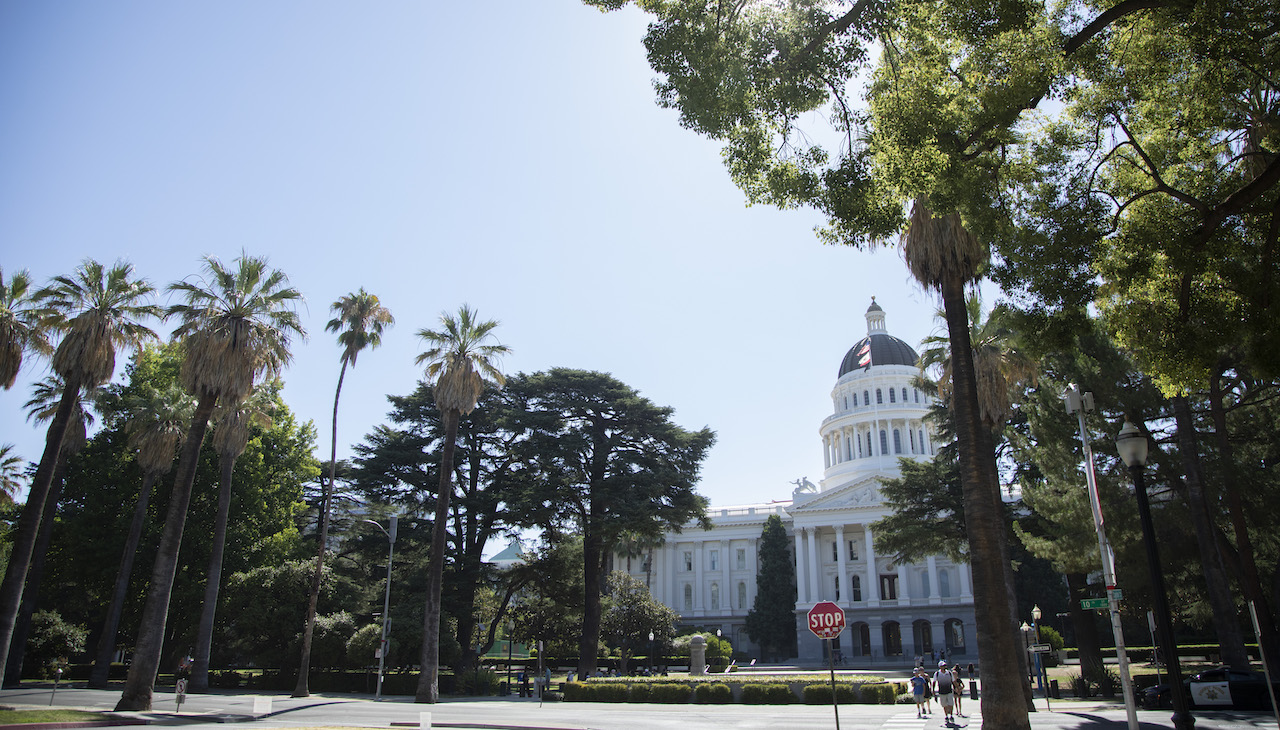
Four of California’s GOP lawmakers call out exclusion from state’s Latino Caucus
The four represent the largest number of Republican Latino members of California’s legislature in 20 years.
The California Latino Legislative Caucus — founded over 50 years ago in 1973 — was created to advance and fight for the educational, social, political and cultural interests of the large Latino community in The Golden State.
It brings together members from the State Senate and General Assembly to pinpoint and recognize significant problems affecting Latinos and as a result, create ways to further empower the Latino community.
However, the caucus has had a long history of excluding Republican officials despite their Latino and Hispanic ethnicity and origins. That aspect is now being brought to light again by a GOP lawmaker who wanted to initially join back in 2020 when voted into office, as well as for three other recently-elected Republican lawmakers.
The state currently has 13 non-party caucuses, and besides the Latino one. There is also an Asian American & Pacific Islander caucus that also bars Republicans from joining.
Those excluded from the Latino Caucus include Senator Rosilicie Ochoa Bogh of the 23rd State Senate district — first elected back in 2020 — and newly-elected lawmakers Juan Alanis of Modesto, Kate Sanchez of Orange County and Josh Hoover of Folsom.
In an interview with the Sacramento Bee, shortly after being elected in 2020, Ochoa Bogh had become the first Republican Latina senator in the state’s history and contemplated joining the state’s Latino Legislative Caucus, saying it seemed a natural decision.
Ochoa Bogh was born in California to Mexican immigrants before settling in San Bernardino. She had spent a chunk of time living in Mexico. As a result, her first language was Spanish. But after being elected and looking to join the caucus, she would come to find out that GOP officials were not allowed to join, regardless of Latino ethnicity.
“It came with an irony because traditionally Democrats speak of equality and opportunity and they’re not allowing all Latinos,” she said.
Besides Ochoa Bogh, the three other newly-elected officials have publicly expressed desire to learn more about the Latino Caucus, but did not say if they would join if invited to.
California Democratic officials first founded the caucus 50 years ago and from its inception, had always barred Republicans. That particular approach has long been criticized anytime multiple Latino Republicans won any kind of state office.
It’s also not something unique to California. At the federal level, there is both the Congressional Hispanic Caucus and Congressional Hispanic Conference. The former is the much longer-running caucus of Hispanic representatives in the House, founded in 1976. The Congressional Hispanic Caucus was initially a bipartisan caucus made up of Hispanic Democrats and Republicans, but differences became too great in the 1990s, and Republicans left to form the Congressional Hispanic Conference.
Much like Ochoa Bogh’s pushback in California, there have occasionally been Republican representatives elected to Congress that have called out the Congressional Hispanic Caucus for not inviting them to join. The latest was Rep. Mayra Flores, who was subsequently defeated in the November 2022 midterm elections after winning a special election earlier in the year.
As of now, the California Latino Caucus has 35 members, and has been instrumental in regards to winning a number of big legislative efforts over past decade, which include building a social safety net for The Golden State’s nearly 2.3 million undocumented immigrants.
RELATED CONTENT
Ochoa Bogh, however, said the name itself is deceptive and contradictory to what their vision is as a Latino caucus.
“It creates a false pretense as to what it symbolizes because it’s really the Democrat California, Latino Legislative Caucus,” Ochoa Bogh said.
Opposition has, in the time since its founding, pointed out the Democrat-only membership rule and have continuously argued that it does not adequately show the huge diversity of opinions among California’s huge Latino population.
“It’s problematic because the Democratic Party is no more the home for Latinos than the Republican Party is the home for Christians… It’s damaging to democracy while creating some very narrow policy focus,” said Mike Madrid, a Republican Latino voting trends expert.
Ochoa Bogh reignited the conversation surrounding the membership policy as recently GOP Assemblymembers Juan Alanis of Modesto, Kate Sanchez of Orange County and Josh Hoover of Folsom won their respective races during this most recent November midterm elections. There are now four GOP Latino reps in the state.
They represent the largest number of GOP Latinos in the California Legislature in roughly 20 years in what is historically a rather blue state.
Madrid also pointed to recent positive shifts that reveal that the GOP have more support from the Latino community than in times past, adding that the Latino Caucus would likely gain some positives out of the diversity of opinions if Republicans were allowed to join.
“For 50 years, the California Latino Legislative Caucus has advocated for the nearly 16 million Latinos in California,” said Assemblywoman Sabrina Cervantes, chair of the caucus, in an email statement. “The CLLC will continue as our founding memberships’ precedent set forth.”











LEAVE A COMMENT: